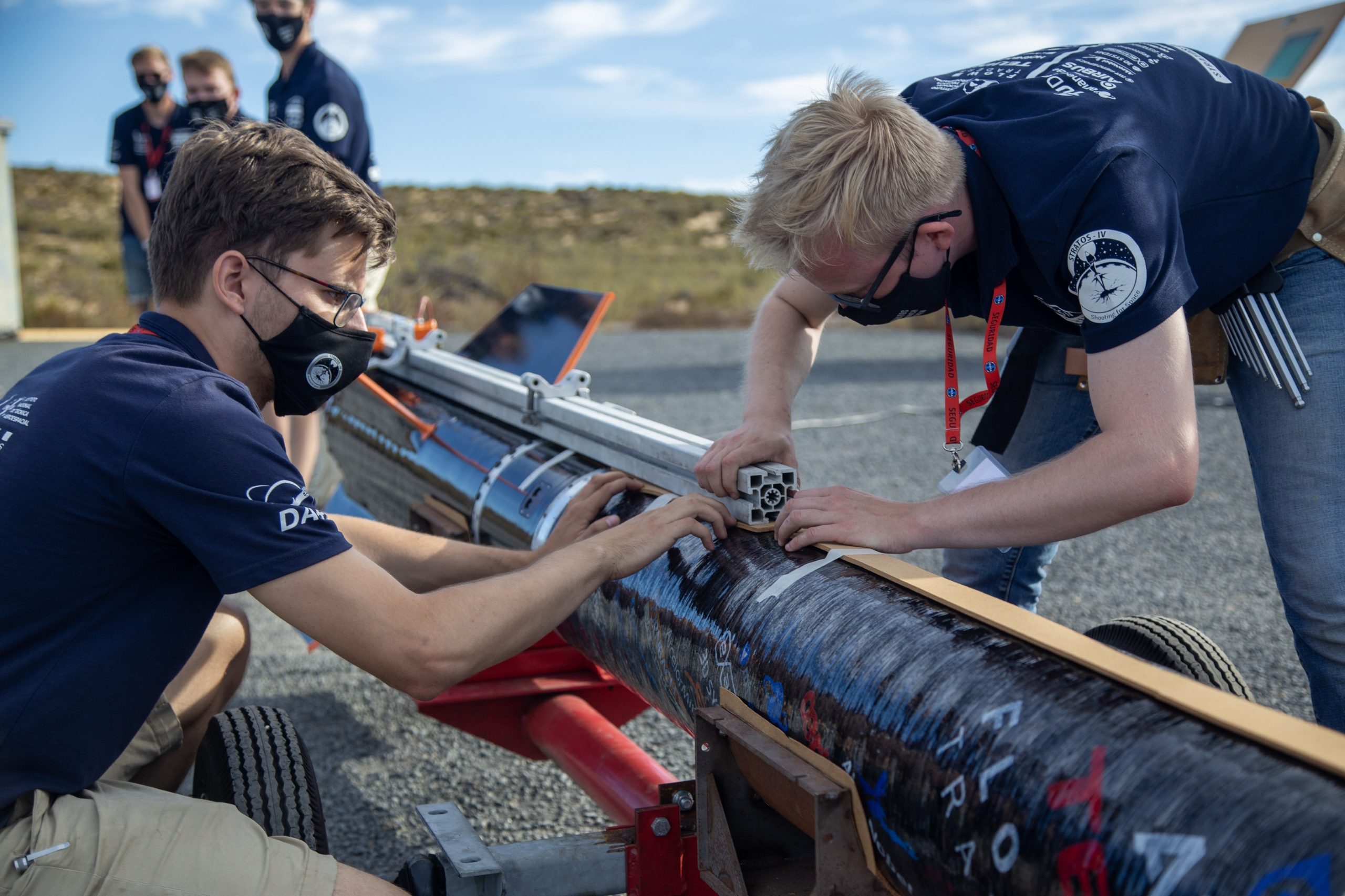After several attempts, the students at Delft Aerospace Rocket Engineering (DARE) did not manage to launch the Stratos IV. Technical problems kept the rocket grounded.
Delft Aerospace Rocket Engineering (Dare) students working on their rocket, the Stratos IV. (Photo: Dare)
The goal of the DARE student team was to set a new European altitude record, but the Stratos IV rocket came no further than the launching pad at the Instituto Nacional de Técnica Aeroespecial’s rocket launch site in Spain.
The team had a week in which to launch the rocket –Saturday 16 October to Saturday 23 October – but technical problems and bad weather conditions delayed the launch time after time.
‘It would be irresponsible to launch an unsafe rocket‘
The first attempt (17 October) failed because of a problem with the scales that weigh the amount of fuel. The second attempt (20 October) failed because of disadvantageous winds at high altitude and a leak was discovered while fuelling – one of the last steps prior to launching – the rocket. The third attempt last Friday (22 October) saw problems with the filler arm. This meant that the wrong amount of fuel was loaded onto the rocket. The team could make a last attempt on Saturday 23 October but they decided not to launch it for safety reasons.
Deep disappointment
While the Stratos IV is being packed in wooden crates and the team prepares for the trip back to Delft, team members Adriaan Smit and Lukas Ciunaitis look back at the events of the past week.
“After two failed attempts on Friday, things were not looking good,” says Smit. “We worked with the teams in Spain and the Netherlands through the night to fix the problem with the filler arm. On Saturday it turned out that the problem was more complicated than we thought and we took the difficult decision to not proceed with the launch. The problem could not be solved safely.”
The disappointment and the deafening silence when the team managers shared the news has left a lasting impression on Ciunaitis.
This reaction can be expected, Smit believes. “Of course we are disappointed. We had hoped that things went differently. But it would simply be irresponsible to launch an unsafe rocket.”
- The students had hoped that their home-made rocket would beat the European student altitude record set by the students at the Universität Stuttgart. They shot their rocket to 32.3 kilometres in 2016.
Heart-warming
The launch attempt was followed avidly. Countless viewers closely followed the team through every step of the way via a livestream on YouTube. They saw how the students held their heads in their hands with disbelief after yet another failed attempt and they left heart-warming messages in a live chat. Ciunaitis says that “It was bizarre how many reactions we got from family, friends, sponsors, TU Delft staff and even rocket fans all over the world. We all felt hugely supported.”
Whether a Stratos rocket will go into space next year is still up in the air. “DARE consists of several projects so in the end, it is up to the new generation of ‘rocket fanatics’ to decide how to proceed,” says Ciunaitis.
Do you have a question or comment about this article?
m.vanderveldt@tudelft.nl


Comments are closed.